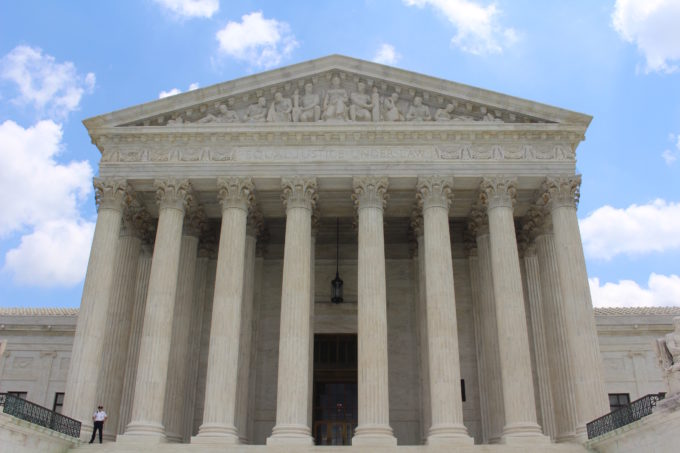
Matal v. Tam: SCOTUS Rules Disparagement Clause in Lanham Act Unconstitutional
By Niki Edmonds – Edited by Daniel Moubayed
Matal v. Tam 582 U. S. ____ (2017), hosted by IPWatchdog.
The U.S. Supreme Court affirmed the decision of the Federal Circuit, holding that the statutory ban on disparaging trademarks is a violation of free speech. Specifically, they ruled that the “disparagement clause” of the 1946 Lanham Act - the primary federal trademark statute in the US - unconstitutionally limited free speech and is invalid.
“The Slants,” a band of Asian Americans, attempted to trademark their band name. They sought to “reclaim” the racial slur, with no intention of denigrating Asian Americans. The Patent Office denied their request on the grounds that the trademark would violate the disparagement clause of the Lanham Act, which prohibits trademarks that "may disparage or falsely suggest a connection with persons, living or dead, institutions, beliefs, or national symbols, or bring them into contempt or disrepute." 15 U.S. Code § 1052 (a). This decision comes in the wake of public discussion around the Washington Redskins football team trademarks. The result in Matal v. Tam is likely to protect them from further legal challenges.
The Supreme Court held that “The Slants” could not be stopped from registering their band name, irrespective of disparaging intentions, or whether or not the name was disparaging. The Court reasoned that disparaging speech is not generally prohibited by the government. The Court contrasts disparaging speech with speech that constitutes fraud, defamation, or incitement, which is limited even when spoken by private parties.
The patent office argued that the registering of the trademarks makes it government speech, government sponsored, or subsidized speech. They also argued that the trademark was commercial speech, and that therefore some free speech limitations were allowable. The Court rejected these arguments and held that trademarks are private speech, and should have the freedoms granted to private speech. They further argued that even if trademarks are commercial speech, the disparagement clause was too broad and too vague to be constitutional.
Justices Kennedy and Thomas wrote concurring opinions. Justice Kennedy (joined by Justices Ginsburg, Sotomayor, and Kagan) agreed with most of the opinion, but went further in his criticism of the statue. He found that the “disparagement clause” constituted viewpoint discrimination, the term the Supreme Court uses to categorize government rules and regulations that favor a particular set of values and opinions. The Court has stated that rules and procedures that create or espouse viewpoint discrimination silence political debate and unconstitutionally limit speech. Viewpoint tests also rely on government employees to make value judgements about the quality of speech.
Justice Thomas also joined most of the opinion but noted that he does not believe that commercial speech should be limited any more than purely private speech.
An amicus brief from Members of Congress suggests that discriminatory trademarks can lead to discriminatory behavior. Others say that trademarks need not be registered to be enforced and that registration of disparaging remarks is simply unnecessary government approval of the hurtful trademarks.
IP Watchdog provides an overview of the case. A collection of Native American Organizations filed an amicus brief supporting the disparagement clause as an important regulation protecting groups who have been discriminated against. Widely known institutions on both sides of the aisle including the ACLU and the Cato Institute wrote amicus briefs against the disparagement clause. The Harvard Law Review discusses the details of how strict scrutiny was applied to the Matal v. Tam case in the Federal Circuit.